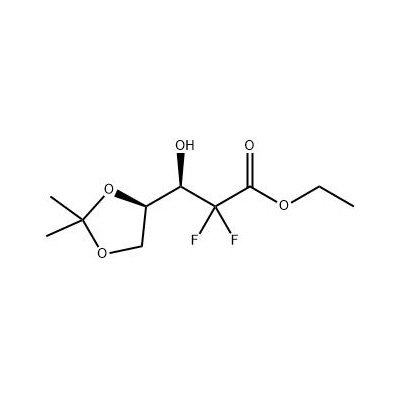
- English
- Español
- Português
- русский
- Français
- 日本語
- Deutsch
- tiếng Việt
- Italiano
- Nederlands
- ภาษาไทย
- Polski
- 한국어
- Svenska
- magyar
- Malay
- বাংলা ভাষার
- Dansk
- Suomi
- हिन्दी
- Pilipino
- Türkçe
- Gaeilge
- العربية
- Indonesia
- Norsk
- تمل
- český
- ελληνικά
- український
- Javanese
- فارسی
- தமிழ்
- తెలుగు
- नेपाली
- Burmese
- български
- ລາວ
- Latine
- Қазақша
- Euskal
- Azərbaycan
- Slovenský jazyk
- Македонски
- Lietuvos
- Eesti Keel
- Română
- Slovenski
- मराठी
- Srpski језик
What is the cost of Gemcitabine HCl T3 and is it covered by insurance?
2024-09-26

What are the side effects of Gemcitabine HCl T3?
Common side effects of Gemcitabine HCl T3 include nausea, vomiting, loss of appetite, hair loss, or tiredness. In some cases, Gemcitabine HCl T3 can also cause more serious side effects such as low blood cell counts, severe allergic reactions, or liver and kidney problems.
How long does Gemcitabine HCl T3 treatment take?
The length of Gemcitabine HCl T3 treatment varies depending on the type and stage of cancer being treated. Treatment may last several weeks or months, and may be given in cycles with rest periods in between.
What is the cost of Gemcitabine HCl T3 and is it covered by insurance?
The cost of Gemcitabine HCl T3 varies depending on factors such as dosage, duration of treatment, and location. It may be covered by insurance, but this also depends on the patient's individual insurance plan and coverage.
Can Gemcitabine HCl T3 be used in combination with other chemotherapy drugs?
Yes, Gemcitabine HCl T3 can be used in combination with other chemotherapy drugs to increase effectiveness and improve treatment outcomes. The type and dosage of drugs used in combination may vary depending on the patient's medical condition.
In conclusion, Gemcitabine HCl T3 is a chemotherapy drug used to treat various types of cancer. Though it has some side effects, it can be an effective part of cancer treatment in certain cases. The cost of Gemcitabine HCl T3 can vary and may or may not be covered by insurance. Depending on the patient's medical condition, Gemcitabine HCl T3 can also be used in combination with other chemotherapy drugs.
Jiangsu Run'an Pharmaceutical Co. Ltd. is a pharmaceutical company that specializes in the production and sale of high-quality generics and innovative drugs. With a focus on research and development, Jiangsu Run'an Pharmaceutical Co. Ltd. strives to provide effective and affordable treatments for patients with various medical conditions. For more information and inquiries, please visit our website at https://www.jsrapharm.com, or contact us at wangjing@ctqjph.com.
Research Papers
1. Von Hoff DD, Ramanathan RK, Borad MJ, et al. Gemcitabine plus nab-paclitaxel is an active regimen in patients with advanced pancreatic cancer: a phase I/II trial. Journal of Clinical Oncology. 2011;29(34):4548-4554.
2. Schiller JH, Harrington D, Belani CP, et al. Comparison of four chemotherapy regimens for advanced non-small-cell lung cancer. The New England Journal of Medicine. 2002;346(2):92-98.
3. O'Shaughnessy J, Miles D, Vukelja S, et al. Superior survival with capecitabine plus docetaxel combination therapy in anthracycline-pretreated patients with advanced breast cancer: phase III trial results. Journal of Clinical Oncology. 2002;20(12):2812-2823.
4. Wang Y, Zou B, Wang G, et al. A phase I study of gemcitabine plus sorafenib for the treatment of advanced solid tumors. Cancer Chemotherapy and Pharmacology. 2015;76(6):1193-1201.
5. Heinemann V, Quietzsch D, Gieseler F, et al. Randomized phase III trial of gemcitabine plus cisplatin compared with gemcitabine alone in advanced pancreatic cancer. Journal of Clinical Oncology. 2006;24(24):3946-3952.
6. Miller KD, Chap LI, Holmes FA, et al. Randomized phase III trial of capecitabine compared with bevacizumab plus capecitabine in patients with previously treated metastatic breast cancer. Journal of Clinical Oncology. 2005;23(4):792-799.
7. Burris HA, Moore MJ, Andersen J, et al. Improvements in survival and clinical benefit with gemcitabine as first-line therapy for patients with advanced pancreas cancer: a randomized trial. Journal of Clinical Oncology. 1997;15(6):2403-2413.
8. Sandler A, Gray R, Perry MC, et al. Paclitaxel-carboplatin alone or with bevacizumab for non-small-cell lung cancer. The New England Journal of Medicine. 2006;355(24):2542-2550.
9. Murphy JD, Adusumilli S, Griffith KA, et al. Full-dose gemcitabine and concurrent radiotherapy for unresectable pancreatic cancer. International Journal of Radiation Oncology, Biology, Physics. 2007;68(3):801-808.
10. Seidman AD, Berry D, Cirrincione C, et al. Randomized phase III trial of weekly compared with every-3-weeks paclitaxel for metastatic breast cancer, with trastuzumab for all HER-2 overexpressors and random assignment to trastuzumab or not in HER-2 nonoverexpressors: final results of Cancer and Leukemia Group B protocol 9840. Journal of Clinical Oncology. 2008;26(10):1642-1649.


